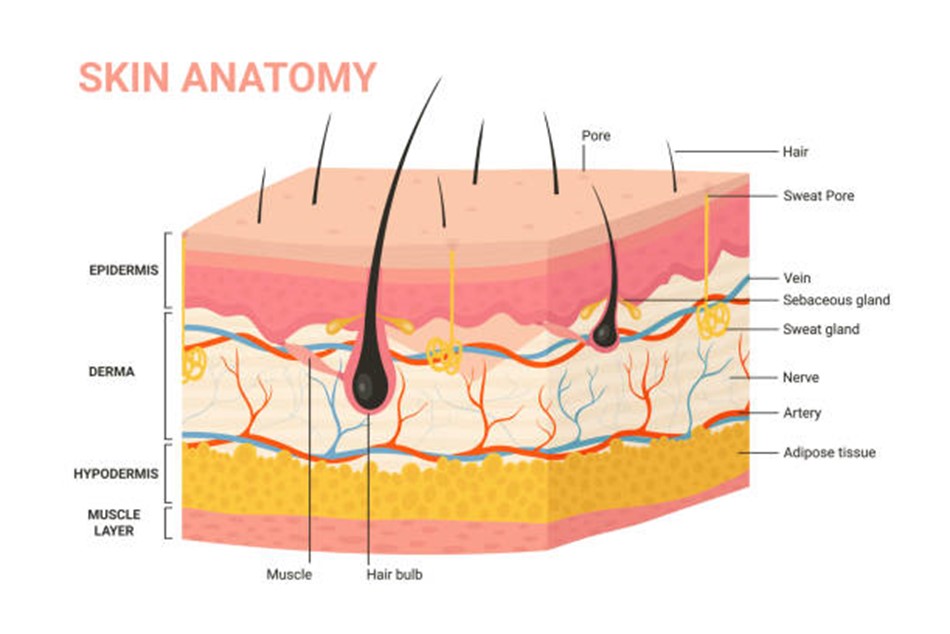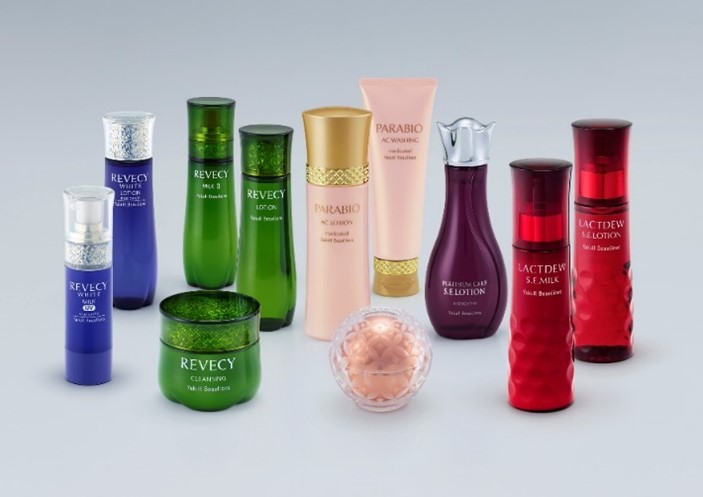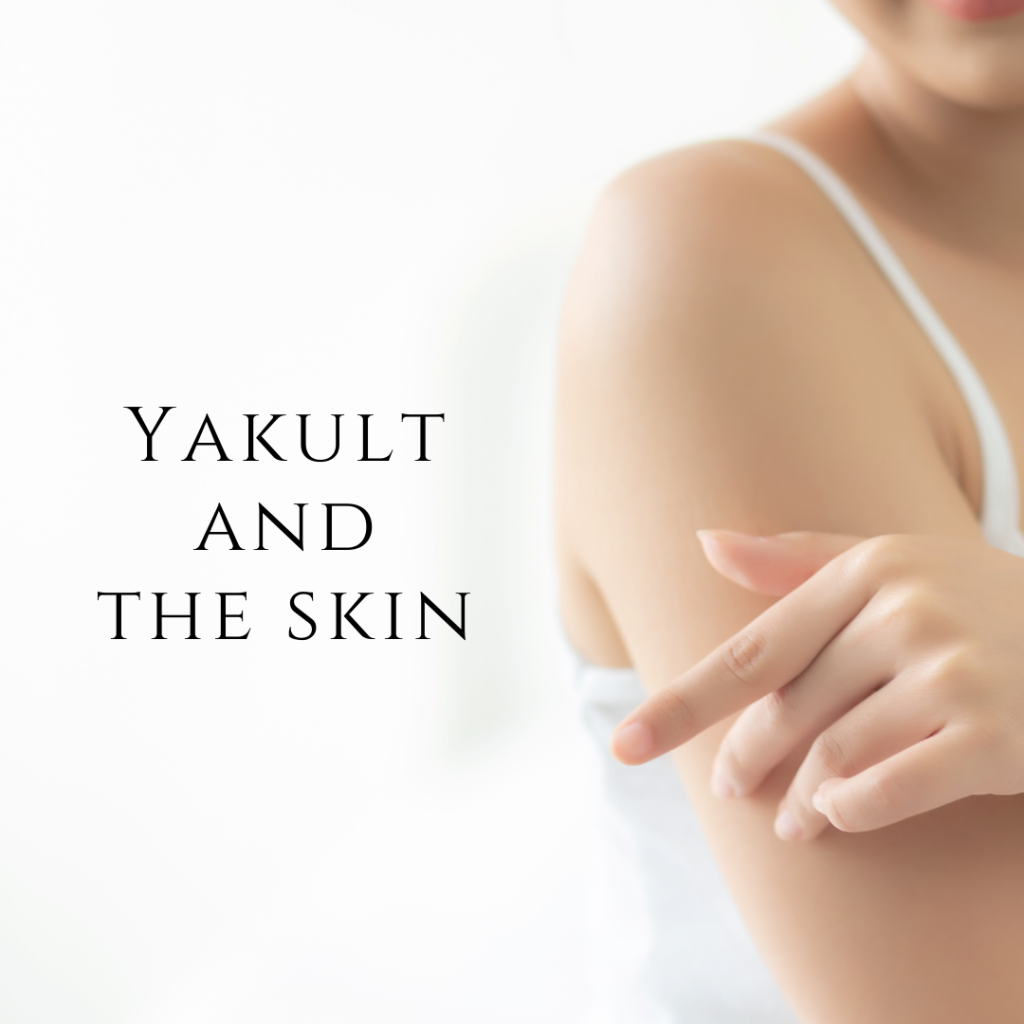When we hear the word “probiotics,” we usually think of intestinal health. But did you know that these friendly bacteria can work wonders for your skin too? In this blogpost, we will explore how probiotics can contribute to a healthier complexion!
First, what are probiotics?
According to the World Health Organisation, probiotics are “live microorganisms which when administered in adequate amounts confer a health benefit on the host.” 1 While they are renowned for their positive effects on gut health, recent research has unveiled their remarkable potential for skin health.
What is the definition of skin?
The skin is like your body’s protective shield. It’s the outer covering that wraps around you, keeping everything inside safe. It’s like a barrier that keeps out harmful things and helps to keep your body temperature just right – not too hot, not too cold, and not too wet or dry. Your skin also lets you feel things, like touch, heat, cold, and pain. Hence, it is important to take care of our skin as it plays a significant role in maintaining our overall health and wellbeing.

Figure 1. Anatomy of the skin. 2
Like our intestine, the skin harbors many, different kinds of microorganisms, including both beneficial and potentially harmful bacteria. The beneficial microorganisms in our skin microflora play a crucial role in maintaining skin health by preventing the potentially harmful bacteria from causing problems and by keeping everything in balance. However, imbalances in this microbial community can lead to skin issues such as acne, rosacea, and dermatitis. 3 Probiotics can help by supporting the beneficial bacteria and preventing the overgrowth of harmful ones, ultimately promoting skin health. 4
How do probiotics help the skin?
Now, let’s dive into some of the ways probiotics can help you achieve and maintain radiant skin!
- Probiotics helps with acne
Acne is a common skin condition that affects a significant percentage of the population. It is primarily caused by the presence of P. acne bacteria, a potentially harmful bacteria, on the skin. Studies have shown that probiotics can play a significant role in managing acne when consumed or applied to the skin. 5 Here’s how they work:
- Inhibiting bacterial growth: Probiotics help prevent the growth of P. acne and other harmful bacteria that can lead to acne breakouts. They do this by releasing antibacterial proteins and inhibitory substances. By creating a less favourable environment for these bacteria to grow, probiotics contribute to clearer skin. 6
- Anti-inflammatory effects: In addition to controlling bacterial growth, probiotics have anti-inflammatory properties. They reduce redness and inflammation, helping to combat the telltale signs of acne. 5
- Probiotics keeps your skin youthful
The aging process is complex and influenced by various factors, including genetics and environmental factors. However, probiotics, in both oral and topical form, 7 have been found to have anti-aging properties, promoting a more youthful appearance 8:
- Improved skin gloss: Probiotics enhance the gloss of your skin, giving it a healthier and more radiant look.
- Moisture retention: They help maintain optimal moisture levels in your skin, preventing dryness and flakiness.
- Reduction in wrinkle depth: Probiotics can reduce the depth of skin wrinkles, making your skin look more elastic and youthful.
- Probiotics maintain the skin barrier integrity
The skin acts as a barrier to guard our bodies from various external threats, ranging from harmful microbes to environmental stresses. Maintaining its integrity is essential for healthy skin. Probiotics are known to amplify and activate skin barrier proteins, thus restoring and strengthening the skin’s natural defence and mechanism. 9
Yakult’s role in skin health
Yakult is a probiotic drink known for its distinct taste and its unique probiotic strain, Lacticaseibacillus paracasei Shirota (LcS). This strain sets Yakult apart from other probiotic products and has been a staple in digestive health for decades. While the Yakult Original and Yakult LIGHT we have here in Australia are intended for consumption, fun fact, Yakult Japan has their own cosmetic research department and skin care range!

Figure 2. Yakult cosmetic products sold in Japan. 10
Back in the 1950s, Yakult was packaged in glass bottles. The women in the factory who cleaned these bottles for reuse had remarkably soft, beautiful hands due to their contact with the lactic acid probiotic extracts. Using the extracts from the fermentation of carefully selected lactic acid bacteria, Yakult Japan then developed the Shirota Essence, which moisturises, protects, and keep your skin healthy. While we often associate Yakult with a tasty beverage, it’s fascinating to know that Yakult Japan has a dedicated cosmetic research department, highlighting the versatility of probiotics in skincare!
Research has highlighted the benefits of probiotics for the skin. Experience the benefits of incorporating probiotic skincare into your daily routine and witness the difference it can make! Start your journey to radiant, healthy skin today!
References
- Hill C, Guarner F, Reid G, et al. Expert consensus document. The International Scientific Association for Probiotics and Prebiotics consensus statement on the scope and appropriate use of the term probiotic. Nature reviews Gastroenterology & hepatology. 2014;11(8):506-514. doi: https://doi.org/10.1038/nrgastro.2014.66
- 4,900+ Skin Diagram Stock Photos, Pictures & Royalty-Free Images – iStock. www.istockphoto.com. https://www.istockphoto.com/photos/skin-diagram
- Zhu W, Hamblin MR, Wen X. Role of the skin microbiota and intestinal microbiome in rosacea. Frontiers in Microbiology. 2023;14. doi: https://doi.org/10.3389/fmicb.2023.1108661
- Kober MM. Commentary on “The Effects of Probiotics on Immune Regulation, Acne and Photoaging.” Dermatology and Dermatitis. 2018;3(1):01-01. doi: https://doi.org/10.31579/2578-8949/040
- Goodarzi A, Mozafarpoor S, Bodaghabadi M, Mohamadi M. The potential of probiotics for treating acne vulgaris: A review of literature on acne and microbiota. Dermatologic Therapy. 2020;33(3). doi: https://doi.org/10.1111/dth.13279
- Teng Y, Huang Y, Danfeng X, Tao X, Fan Y. The Role of Probiotics in Skin Photoaging and Related Mechanisms: A Review. Clinical, Cosmetic and Investigational Dermatology. 2022;Volume 15:2455-2464. doi: https://doi.org/10.2147/ccid.s388954
- Sivamaruthi BS, Kesika P, Chaiyasut C. A REVIEW ON ANTI-AGING PROPERTIES OF PROBIOTICS. International Journal of Applied Pharmaceutics. 2018;10(5):23. doi: https://doi.org/10.22159/ijap.2018v10i5.28249
- Jung YO, Jeong H, Cho Y, et al. Lysates of a Probiotic, Lactobacillus rhamnosus, Can Improve Skin Barrier Function in a Reconstructed Human Epidermis Model. International Journal of Molecular Sciences. 2019;20(17):4289. doi: https://doi.org/10.3390/ijms20174289
- COMPANY PROFILE.; 2021. https://www.yakult.co.jp/english/pdf/profile2021-2022_en.pdf
